PSG Make Light Work of Inter Miami in Club World Cup Showdown
It’s not often you see Lionel Messi’s team swept aside, but PSG barely blinked as they powered past Inter Miami 4-0, ending the MLS club’s dream run in the Club World Cup. For Inter Miami, reaching the knockout round already rewrote some history, but up against the French giants, the gulf was laid bare from the opening whistle.
PSG wasted no time in stamping their authority. João Neves, the 19-year-old Portuguese sensation, put his team ahead in the sixth minute—rising effortlessly to head home Vitinha’s pinpoint free-kick. If Miami fans had any hope their side might weather the French storm, Neves snuffed that out well before halftime. His second came close to the break: a sharp, flowing move featuring Fabián Ruiz ended with Neves coolly burying his shot past a sprawling goalkeeper. PSG led 2-0, and Miami’s defense looked rattled every time the Parisians swept forward.
The MLS side’s troubles just kept piling up. Right before halftime, Tomás Avilés accidentally turned a deflected shot into his own goal, making it 3-0 and looking for all the world like Miami’s luck had run out. A minute later, Achraf Hakimi hammered home the fourth after a quick PSG counter, pouncing on a rebound that Inter couldn’t clear. Four goals—four ruthless reminders of the standard at Europe’s top clubs.
Inter Miami’s Club World Cup Journey Ends, PSG Eyes Bigger Prize
There were bright spots: Inter Miami didn’t get to this stage by accident. Their last-round 2-1 win over FC Porto stunned just about everybody, showing that the MLS side could, on their day, mix it with some of the best. Messi, Sergio Busquets, and Jordi Alba brought a flash of La Liga pedigree to the tournament, even as the team found itself outgunned against PSG.
Manager Javier Mascherano, standing in for regular boss Tata Martino, had little to criticize about his squad’s effort. "We could see the difference between the teams, but we are very proud of the guys," he told reporters, pointing out that experience like this is priceless for a young club. Every match against a Club World Cup heavyweight like PSG sharpens the learning curve for MLS sides hoping to narrow the gap to Europe’s elite.
PSG, meanwhile, looked as slick and composed as fans have come to expect under Luis Enrique. The Spanish manager called the first half "excellent," and it’s hard to disagree when a team basically puts the game to bed before halftime. With Kylian Mbappé resting and others rotated, PSG’s squad depth showed why they remain favorites whenever they step onto a pitch in these global tournaments.
The journey only gets tougher from here. Up next, PSG faces whichever giant emerges between Flamengo and Bayern Munich—two clubs with European and South American crowns in their trophy rooms. That clash, set for July 5, promises to be one of the highlights of the tournament. For now, though, PSG looks ruthlessly efficient, and Miami goes home with their heads held high after smashing the MLS knockout glass ceiling.

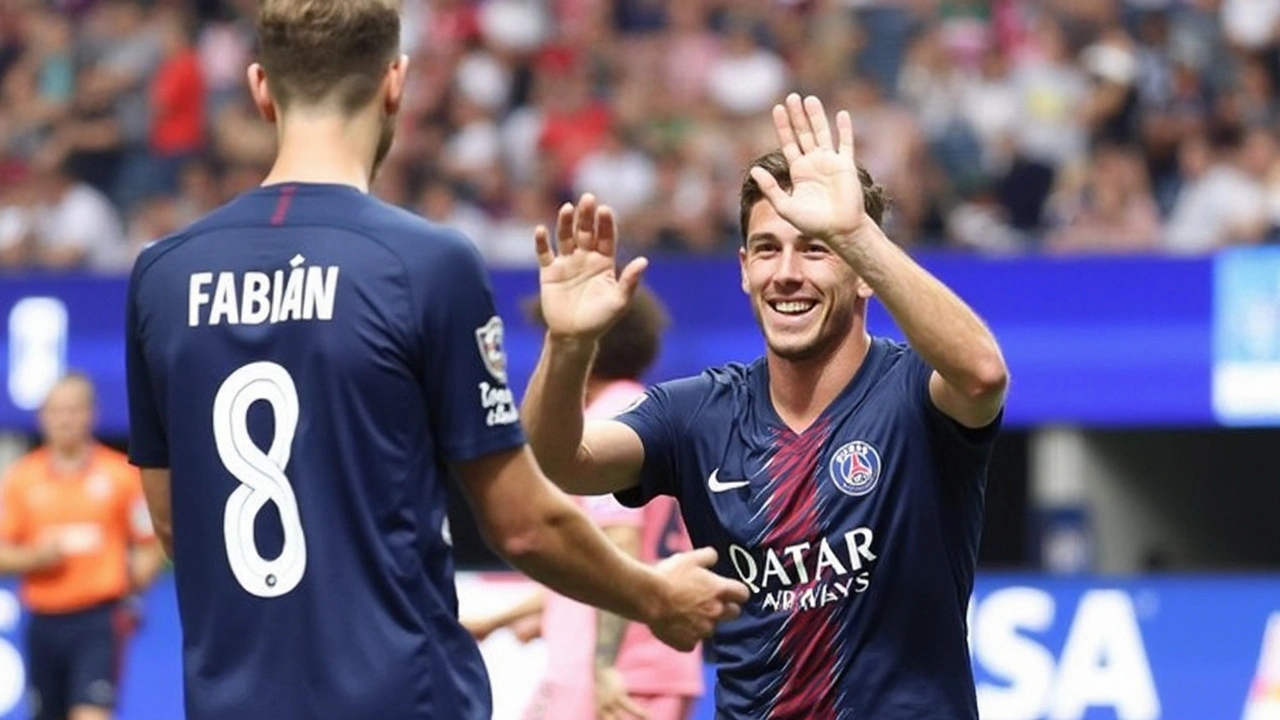
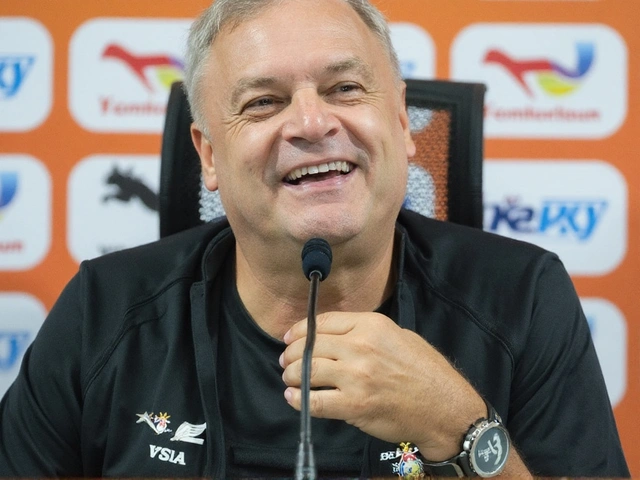
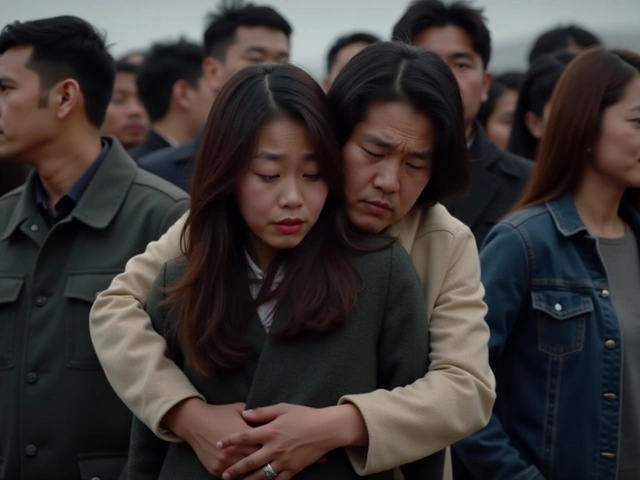


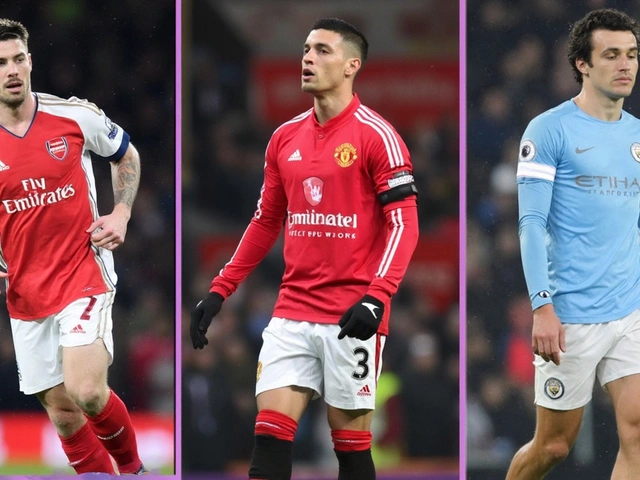
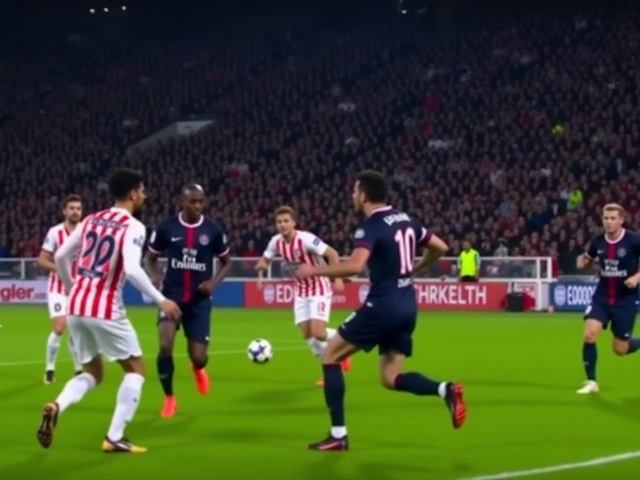

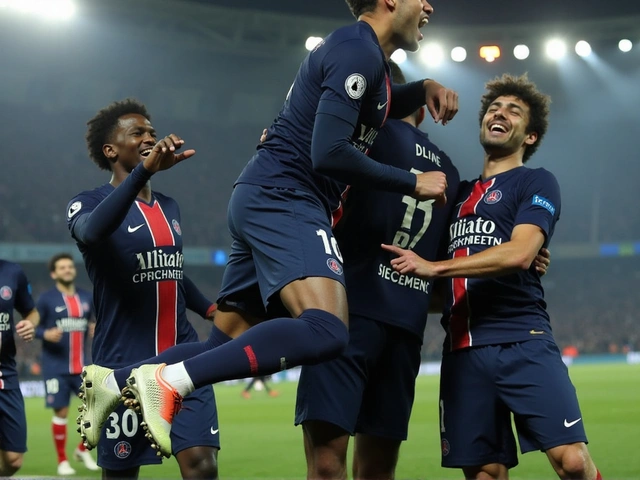
Sara Khan M
June 30, 2025 AT 18:36Another day, another dominant display from PSG. 🌟⚽️ They made it look effortless, while Miami just couldn't keep up. 😅
shubham ingale
July 8, 2025 AT 21:02Huge respect to PSG! They set the bar high and showed what true depth looks like. Keep pushing the limits!
Ajay Ram
July 16, 2025 AT 23:29The match serves as a vivid illustration of the evolving hierarchies within global football, where financial might and tactical innovation converge to produce stark disparities on the pitch. Observers can trace a lineage of strategic refinement that dates back to the early 2000s, when French clubs began to integrate data‑driven approaches into their training regimens. PSG, in particular, epitomizes this transition, leveraging a blend of seasoned veterans and youthful exuberance to dominate possession and create high‑frequency scoring opportunities. Their early goal, orchestrated by João Neves, underscores the importance of aerial proficiency and set‑piece precision, elements that have become foundational in contemporary coaching curricula. Moreover, the seamless transition from defense to attack displayed by the French side reflects a collective mental model that prioritizes positional fluidity over rigid formation adherence. This philosophy, championed by Luis Enrique, resonates with modern theories of space creation and compactness, which emphasize minimizing the opponent’s passing lanes. The subsequent own goal by Tomás Avilés further highlights the psychological pressure exerted by elite clubs on less experienced squads, leading to costly errors under duress. While the MLS side showcased moments of ingenuity, particularly in their earlier triumph over Porto, the structural differences in player development pipelines became evident. The encounter also invites a broader contemplation of how emerging leagues can bridge the gap through investment in youth academies and exposure to international competition. In essence, the 4‑0 result is not merely a scoreboard statistic; it is a microcosm of systemic advantages that pervade football’s ecosystem, prompting stakeholders to reassess pathways for competitive parity. As fans and analysts digest the performance, the dialogue shifts toward sustainability, talent retention, and the role of governance bodies in fostering a more balanced playing field.
Dr Nimit Shah
July 25, 2025 AT 01:56One must acknowledge the sheer tactical superiority displayed by the French side; it is a masterclass in modern football dynamics that many clubs aspire to emulate.
Ketan Shah
August 2, 2025 AT 04:22Observing the match, I noted the spatial discipline of PSG's midfield, which raises interesting questions about training methodologies adopted in European academies.
Aryan Pawar
August 10, 2025 AT 06:49Exactly it's impressive how they control space and keep the ball moving forward makes you appreciate good coaching
Shritam Mohanty
August 18, 2025 AT 09:16What they don’t tell you is how the Club World Cup is rigged in favor of European giants; the referees, the scheduling, everything lines up to keep clubs like Miami from breaking through.
Anuj Panchal
August 26, 2025 AT 11:42The systemic bias you mention aligns with the prevalent hegemonic structures within FIFA’s governance model, wherein resource allocation and operational arbitration disproportionately benefit Eurocentric entities.
Prakashchander Bhatt
September 3, 2025 AT 14:09Even though Miami fell short, their journey inspires smaller leagues worldwide-great things coming!
Mala Strahle
September 11, 2025 AT 16:36Indeed, the narrative of underdogs punching above their weight resonates deeply across the footballing diaspora; it reminds us that the sport’s beauty lies not merely in trophies but in the stories forged on the pitch. While PSG’s clinical execution underscored their status, Miami’s willingness to challenge a titan invigorates fans who yearn for parity. One can contemplate the broader sociocultural impact when a North American side steps onto a global stage, fostering cross‑continental dialogues. Such encounters sow seeds for future talent migration and tactical exchange, enriching the beautiful game. In that sense, the 4‑0 loss, though harsh, becomes a catalyst for growth and reflection.
shubham garg
September 19, 2025 AT 19:02What a match!